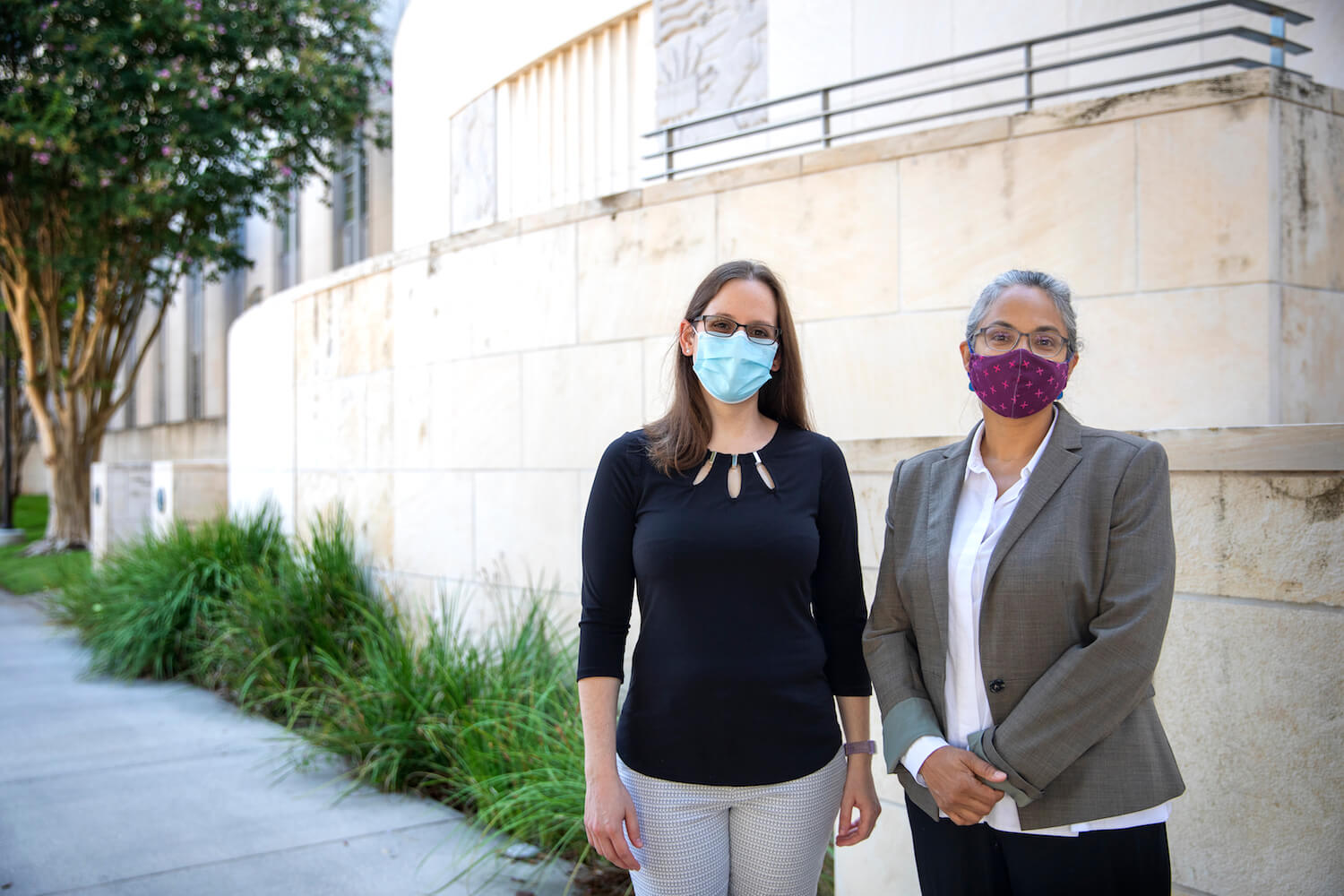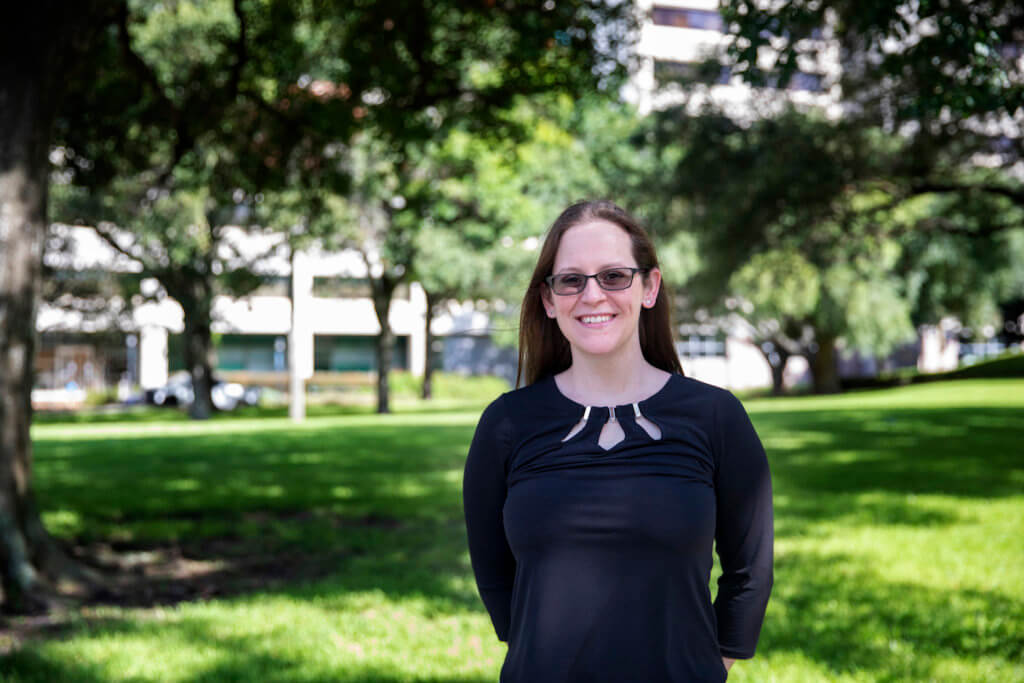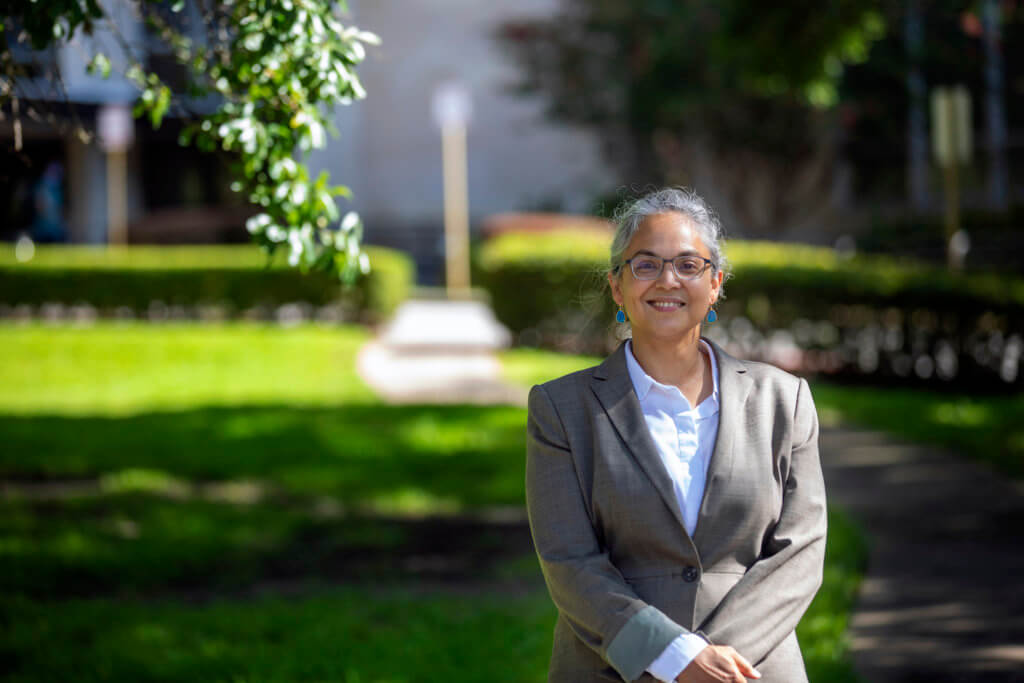Texas Ethics Consortium created amid COVID-19 pandemic by TMC experts

Early in the COVID-19 pandemic, shortages of personal protective equipment (PPE) and anxiety about the allocation of scarce resources became a growing cause for concern among medical ethicists.
Experts from multiple Texas Medical Center institutions decided to unite to address these issues.
“We got together on a regular call to help each other, share resources and work through our concerns,” explained Claire Horner, J.D., M.A., assistant professor in the Center for Medical Ethics and Health Policy at Baylor College of Medicine and a clinical ethicist at Baylor St. Luke’s Medical Center. “The goal was to harmonize our ethics policies, specifically around allocation of scarce resources. We were at the beginning of anticipating things that had already happened in New York, such as running out of hospital beds or running out of ventilators.”
::::::::::::::::::::::::::::::::::::::::::::::::::::::::::::::::::::::::::::::::::::::::::::::::::::::::::::::::::::::::::::::::::::::::::::::::::::::
Looking for the latest on the CORONAVIRUS? Read our daily updates HERE.
::::::::::::::::::::::::::::::::::::::::::::::::::::::::::::::::::::::::::::::::::::::::::::::::::::::::::::::::::::::::::::::::::::::::::::::::::::::
Shortly thereafter, when Houston began experiencing a surge in COVID-19 cases and hospitalizations, colleagues across the United States began reaching out to Horner as well—including one from Michigan. That ethicist shared details about the new Michigan Ethics Consortium. Its members, scattered throughout the Great Lakes State, held a weekly call to discuss ethical issues, share resources and craft policies. Horner brought the idea to the Texas Medical Center ethics team and shortly thereafter, the Texas Ethics Consortium was born.
“In Texas, we were facing a lot of unique challenges with the surges we were having and with the ethical issues that we were coming up against,” Horner said. “It was really important for us to have a network from across Texas where ethicists can share their experiences and share their resources—especially in institutions that have fewer resources and may want to draw on the expertise of the broader group.”

Claire Horner, J.D., M.A., is an assistant professor in the Center for Medical Ethics and Health Policy at Baylor College of Medicine and a clinical ethicist at Baylor St. Luke’s Medical Center.
A top priority has been the potential scarcity of resources. Transplant cardiologist and ethicist Savitri Fedson, M.D., M.A., compared the dilemma to organ shortages and transplant waitlists.
“I live in a world of scarcity all the time and one thing that everyone realizes when it comes to transplants is their scarcity, but everyone accepts the process,” explained Fedson, who is also an associate professor at the Center for Medical Ethics and Health Policy at Baylor College of Medicine and the program director for Clinical Ethics at Baylor St. Luke’s Medical Center. “People understand that there has to be a rationing and allocation and, generally speaking, people accept it. I keep trying to figure out how to use that framework to other areas where we might have scarcity. How can we expand that beyond the world of transplant to other aspects of medical care?”
Because clinical ethicists work with such critical and sensitive subjects, Fedson said communication and transparency are essential.
“Part of what is important about this consortium is that we’re trying to improve communication with the public and the transparency of things that are often very emotionally fraught topics,” Fedson said.
She anticipates the group will also be addressing the distribution of a COVID-19 vaccine once one becomes available.
“That will be an interesting ethical issue,” Fedson said. “It’s not only the major academic centers but also regional centers and realizing they’re all different. The interests of South Texas may be very different than the Panhandle. But if we have representation from people involved in a lot of these health care systems across Texas, we can really try and make sure that as much as possible that we are taking into consideration health care facilities, differential access to health care and how we can address that best.”

Savitri Fedson, M.D., M.A., is an associate professor at the Center for Medical Ethics and Health Policy at Baylor College of Medicine and program director for Clinical Ethics at Baylor St. Luke’s Medical Center.
The team is also working through concerns about possible discrimination against individuals with disabilities amid the pandemic.
“That’s something that is really at the forefront of our conversations,” Horner said. “We are making sure that our policies are ethically appropriate, nondiscriminatory and able to address these concerns as they come up.”
Both Horner and Fedson hope the consortium lasts past the COVID-19 pandemic, reiterating that collaboration among ethicists across Texas benefits both patients and health care providers.
“What’s really important is that, as ethicists, we are one piece of a very large tapestry of professionals who are working to address these issues,” Horner said. “Our institutions are turning to us and asking us some of these specific questions about how they should move forward with certain things, but we are not the be-all and end-all of these kinds of policy decisions. By sharing these resources and being in constant communication with one another, we can hopefully strengthen our ability to be a resource for our individual institutions as they work to provide these services fairly and appropriately and justly across the population.”
Today, the Texas Ethics Consortium is comprised of about 35 individuals. Membership opportunities continue to spread through word-of-mouth.
Horner said she has been pleased to see health care professionals come together during the pandemic for the common good.
“Especially in the TMC, the institutions have collaborated and worked together in a way that’s really unprecedented,” she added. “I think it’s really important and really key that we are developing and strengthening these relationships with one another as colleagues to help provide better care. It’s less about competition and more about providing the best care that we can for everyone who comes to our medical center.”




